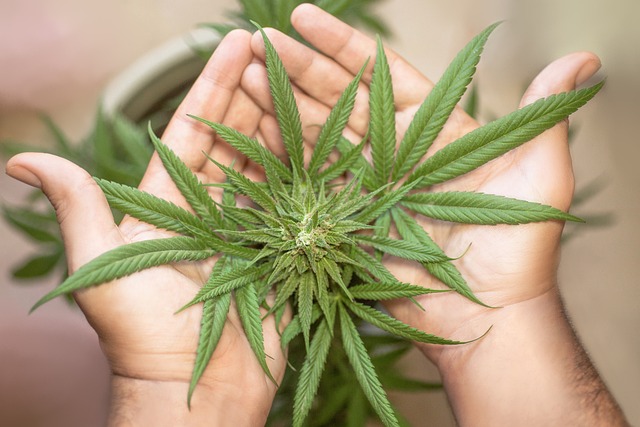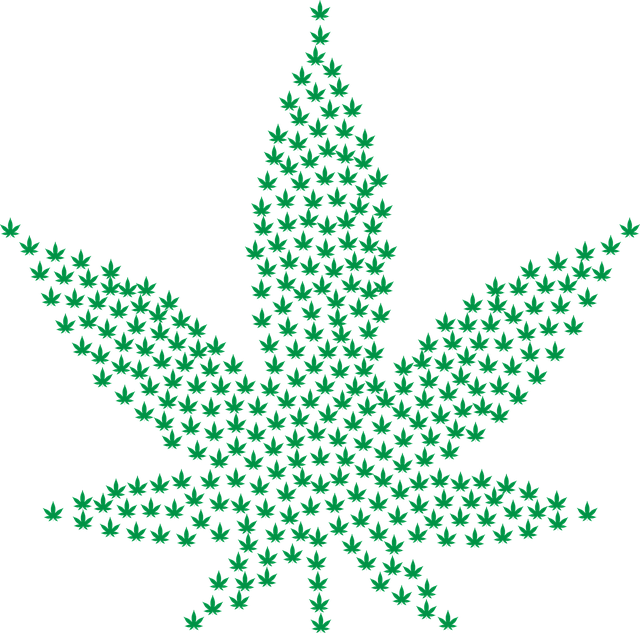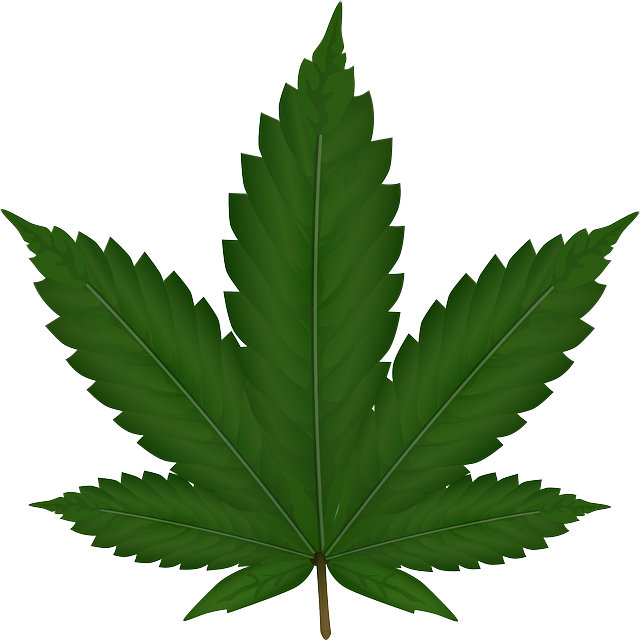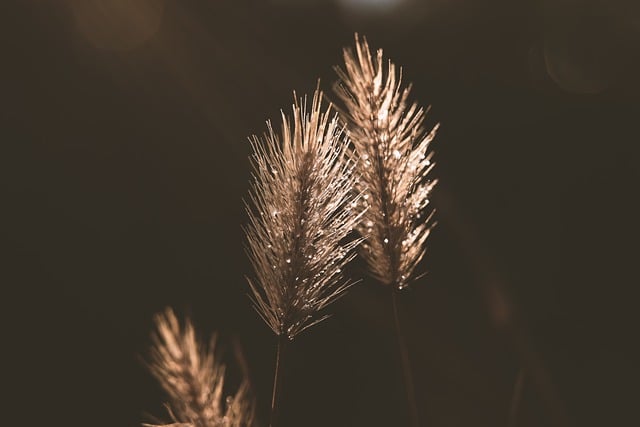THCA buds, a non-psychoactive form of raw cannabis, are being researched for their potential to enhance sleep quality and address sleep disturbances. Unlike its psychoactive counterpart THC, THCA does not impair cognitive function, making it suitable for therapeutic use. Preliminary studies suggest that THCA may improve sleep by promoting relaxation, alleviating anxiety, and facilitating the natural sleep cycles through unique terpenes and flavonoids, a phenomenon known as the entourage effect. While clinical trials are ongoing to fully understand its effects, anecdotal reports and early research indicate that incorporating THCA buds into a daily routine could benefit those with sleep issues. This includes influencing the endocannabinoid system and potentially modulating circadian rhythms and sleep-wake cycles. The use of THCA buds as a natural intervention for sleep disorders is gaining traction, with indica-dominant strains being recommended for their calming effects. It's important to consider dosage based on individual tolerance, timing of ingestion about an hour before bedtime, and personal body chemistry. Always ensure that THCA buds are legally available in your area before use, and consult healthcare professionals for personalized advice, especially if you have existing health conditions or are taking other medications. THCA buds offer a promising alternative for managing sleep disorders by promoting restful sleep and overall wellness.
Exploring the therapeutic properties of THCA buds offers a promising avenue for individuals grappling with sleep disorders. This article delves into the transformative potential of THCA, a non-psychoactive compound found in cannabis, and its emerging role as a natural aid for restful slumber. We will dissect the scientific mechanisms by which THCA influences sleep regulation, guide you through selecting the optimal strain and dosage for your nightly repose, and integrate this knowledge into an effective evening routine. Additionally, we navigate the complex legal landscape surrounding THCA buds to ensure informed and responsible use aligned with sleep health. Uncover the benefits of THCA buds for sleep disorders with this comprehensive guide.
- Unlocking the Potential of THCA Buds in Addressing Sleep Disorders
- The Science Behind THCA and Its Role in Sleep Regulation
- Selecting the Right Strain and Dosage of THCA for Restful Slumber
- Integrating THCA Flower into Your Evening Routine for Optimal Sleep
- Navigating Legalities and Responsible Use of THCA Buds for Sleep Health
Unlocking the Potential of THCA Buds in Addressing Sleep Disorders

THCA, or Tetrahydrocannabinolic Acid, is a non-psychoactive cannabinoid found in the raw cannabis flower that holds promise for addressing sleep disorders. Unlike its psychoactive counterpart, THC, THCA has not been associated with the psychoactive effects commonly linked to cannabis consumption. This distinction makes it an attractive option for individuals seeking therapeutic benefits without altering their mental state. Preliminary research suggests that THCA buds may influence sleep by promoting relaxation and reducing anxiety, both of which are common challenges for those suffering from sleep disorders. The natural sedative properties of THCA could potentially improve the quality of sleep by facilitating a more restful night’s rest and enhancing the overall sleep architecture.
Furthermore, THCA buds contain a unique profile of terpenes and flavonoids that work synergistically with the cannabinoid to enhance its effects. These compounds contribute to the entourage effect, which may amplify THCA’s potential benefits for sleep without the presence of psychoactive components. While clinical studies are still emerging to fully understand the implications of THCA on sleep quality and disorders, anecdotal evidence and early scientific findings support the notion that incorporating THCA buds into a wellness routine could be beneficial for those struggling with sleep disturbances. As such, this natural alternative is gaining attention from both researchers and consumers alike in the quest to find effective, holistic approaches to improving sleep health.
The Science Behind THCA and Its Role in Sleep Regulation

delta-9-tetrahydrocannabinolic acid (THCA) is a non-psychoactive cannabinoid found abundantly in raw cannabis plants and THCA buds. It is the precursor to the well-known psychoactive compound Delta-9-THC, which forms when THCA is exposed to heat or light through a process called decarboxylation. Research has indicated that THCA interacts with the body’s endocannabinoid system (ECS), particularly the CB1 and CB2 receptors, which play a significant role in regulating various physiological functions including sleep.
Studies suggest that THCA may have therapeutic potential for those suffering from sleep disorders. The cannabinoid’s effect on the ECS can influence circadian rhythm regulation, sleep-wake cycles, and REM sleep phase activity. Preclinical research has demonstrated that THCA can help modulate sleep patterns, potentially offering a beneficial effect on sleep architecture by promoting longer periods of deep, restorative sleep. This is particularly promising for individuals with conditions like insomnia or other sleep disturbances. Consumption of THCA buds, often in the form of cannabis-infused products or as isolated extracts, may offer an alternative therapeutic option for sleep regulation without the psychoactive effects associated with Delta-9-THC. As such, THCA’s role in sleep regulation is a subject of growing interest within the scientific community, with ongoing research aimed at further elucidating its mechanisms and potential applications.
Selecting the Right Strain and Dosage of THCA for Restful Slumber

When exploring THCA buds as a natural remedy for sleep disorders, selecting the right strain and dosage is paramount for achieving restful slumber. THC acid (THCA), the precursor to THC found in cannabis plants, exhibits potential therapeutic properties without the psychoactive effects associated with its decarboxylated form. For individuals seeking to improve their sleep quality, indica-dominant strains are often recommended due to their calming and sedative effects. These stracies, rich in THCA buds for sleep disorders, can help alleviate insomnia, anxiety, and pain that may disrupt restful sleep. It’s advisable to start with a lower dosage to gauge the effects, as personal tolerance levels vary greatly. Experienced users might require a higher dosage to experience the desired sedative effects, while newcomers should proceed with caution to avoid overwhelming their systems. Conversely, sativa strains may invigorate and energize, which is counterproductive for sleep, so they are best avoided before bedtime.
To optimize the use of THCA buds for sleep disorders, consider the time of ingestion, as it can influence the onset and duration of sleep. It’s generally recommended to consume THCA-rich products about an hour before your intended sleep time to allow the compound to take effect. Additionally, factors such as body chemistry, metabolism, and individual strain potency must be considered when determining the appropriate dosage. Consistent use and careful monitoring of one’s sleep patterns and overall well-being are key to finding the right balance for a restful night’s rest. Always prioritize quality and purity when sourcing THCA buds, ensuring they are obtained from reputable suppliers who provide detailed information on strain specifics, potency levels, and lab test results. This due diligence will enhance the likelihood of achieving a therapeutic outcome for sleep disorders.
Integrating THCA Flower into Your Evening Routine for Optimal Sleep

Incorporating THCA flower, which stands for tetrahydrocannabinolic acid, into your evening routine can be a natural approach to improve sleep quality, especially for those with sleep disorders. Unlike its psychoactive counterpart, Delta-9-THC, THCA exists in its non-psychoactive acid form and is gaining recognition for its potential therapeutic benefits, including promoting relaxation and reducing inflammation. For individuals seeking a remedy that doesn’t involve pharmaceuticals, THCA buds can be a viable option. The onset of effects from THCA is typically slower than other cannabinoids, allowing for a gentle transition into a calm state conducive to sleep. To integrate THCA flower into your nightly routine, consider consuming it about an hour before bedtime. This timing ensures that the body has ample opportunity to metabolize the compound into Delta-9-THC or other cannabinoids, which can amplify sedative effects. Additionally, preparing a soothing environment—dimming lights, engaging in light stretching, or sipping herbal tea alongside your THCA buds—can further enhance the relaxation response and complement the cannabinoid’s sleep-promoting properties.
Furthermore, the use of THCA flower should be tailored to individual tolerance and needs. Dosing can vary greatly from person to person, so it’s important to start with a low dose and gradually increase as needed, while also monitoring how your body responds. Consistency is key when using any cannabinoid for sleep disorders; maintaining a regular routine can help regulate your circadian rhythm over time. It’s also advisable to consult with a healthcare professional before introducing THCA flower or any new supplement into your health regimen, especially if you have underlying health conditions or are taking other medications. By thoughtfully integrating THCA buds into your evening routine, you may find a natural ally in achieving restful sleep and improving overall well-being.
Navigating Legalities and Responsible Use of THCA Buds for Sleep Health

Navigating the legalities surrounding THCA buds is a critical first step for individuals interested in using them to address sleep disorders. As of the knowledge cutoff date, many jurisdictions have legalized or decriminalized cannabis derivatives containing THC, the psychoactive component of cannabis. However, THCA, which is the raw form of THC before heating, is often found in hemp and is non-psychoactive. It’s important to verify current laws within your jurisdiction, as legality can vary widely. Once assured that the use of THCA buds is permissible, one must consider responsible use practices. THCA buds are touted for their potential to support sleep health due to their relaxing and anti-inflammatory properties, which may help alleviate pain and reduce anxiety—common culprits of sleep disturbances. To harness the benefits of THCA buds effectively for sleep, users should start with a low dose to gauge effects, as THCA’s impact can be influenced by individual body chemistry and tolerance levels. It’s also advisable to consult with a healthcare professional before integrating THCA buds into a nightly routine, especially if there are underlying health conditions or current medications that may interact with cannabinoids. By adhering to legal guidelines and using THCA buds responsibly, individuals can explore this alternative approach to promoting healthy sleep patterns.
THCA buds offer a promising natural alternative for those seeking relief from sleep disorders. The scientific research on THCA’s role in sleep regulation reveals its potential as a non-psychoactive compound that may enhance the quality of restful slumber. By carefully selecting the appropriate strain and dosage, individuals can incorporate THCA flower into their evening routines to promote better sleep. While navigating legal considerations is crucial when considering THCA buds for sleep health, understanding how to use them responsibly is essential. Incorporating these insights into your nightly rituals may contribute significantly to improving sleep patterns and overall well-being.
